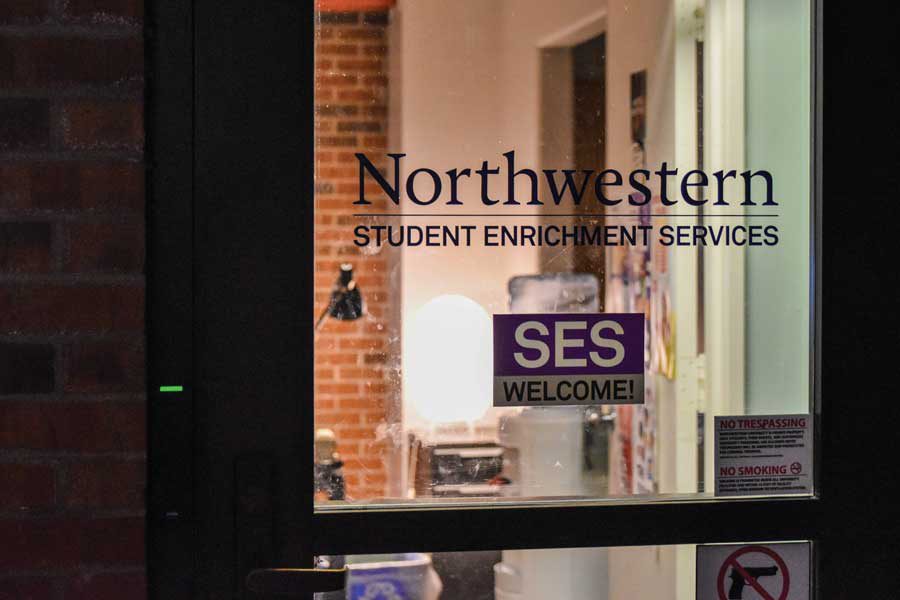University administrators agree to consider First Generation Low Income space for future capital project
Daily file photo by Brian Meng
The entrance to the Student Enrichment Services office, located in Foster-Walker Complex. SES serves as a resource for first-generation, low-income and undocumented students.
April 2, 2019
University administrators have agreed to consider the construction of a First Generation Low Income space as a future project, following the release of a public letter of support from members of Quest+ and Associated Student Government.
In a statement from Vice President Patricia Telles-Irvin and Provost Jonathan Holloway that was shared with members of ASG and Quest+ on March 18, University officials said Northwestern is in the planning phase of a seven-year capital project campaign encompassing every future project, renovation, or potential construction. The statement said they considered the proposal, decided it had merit and included in the list of potential projects going forward.
“We concur that this proposal of an FGLI location would serve our students well and we look forward to identifying a location for future consideration,” the statement reads.
The letter is in response to a declaration of support for an FGLI space that was authored by the co-presidents of Quest+, Madisen Hursey and Christian Reyes, as well as ASG president Emily Ash. The statement, released on February 27, currently has about 550 signatures.
According to Hursey, the idea for a letter grew out of frustration over various roadblocks that the Quest+ board have dealt with while working with administrators. The three decided that they should draft a public letter so that students would have a venue to show support for the initiative.
“We just wanted a centralized, public way for students to show support for the initiative and also to hopefully generate a response from the administrators that would be public for students,” Hursey said.
Ash said the writing process for the letter took a substantial amount of research to ensure their proposal was feasible under the University’s budget without compromising the needs of the community. The three said they also looked into similar projects and spaces that exist at peer institutions, such as the University of California, Berkeley and Brown University, to prove this was an achievable and necessary space for a school like Northwestern to create.
Now that administrators have acknowledged that a FGLI space should be a priority and expressed an intention to include it in a proposal for new capital projects, Ash said, the main focus for her and Quest+ is to make sure future students are closely included in the process for creating the space, especially since all three of the writers are graduating this year.
“It’s really important that … future students are closely included in the process for identifying the space, for imagining and creating what that space looks like, (and) the functions it serves,” Ash said. “So, just keeping students involved at every step of the process, not only for accountability, but also that the creation of the space is student-led.”
Hursey said they plan to create a comprehensive strategy to be passed down to future students to ensure they remain involved. The three will begin drafting the proposal when their students organizations have finished the process of finding new leadership. She said this would solve a persistent issue that ASG and Quest+ have faced in the past, where turnover of students have led to abandonment of projects.
Hursey also said she believes that creating a space for FGLI students on campus is important because, while individual people at Northwestern are committed to bringing in Pell-eligible students and supporting, the school has to improve their support of these students.
“I think it’s required, especially if Northwestern is focused on bringing in more Pell-eligible students on campus,”Reyes said. “That needs to be done with the right amount of support on campus,”
Email: [email protected]
Related Stories:
– ASG introduces resolution urging Northwestern establish first-generation, low-income student center


